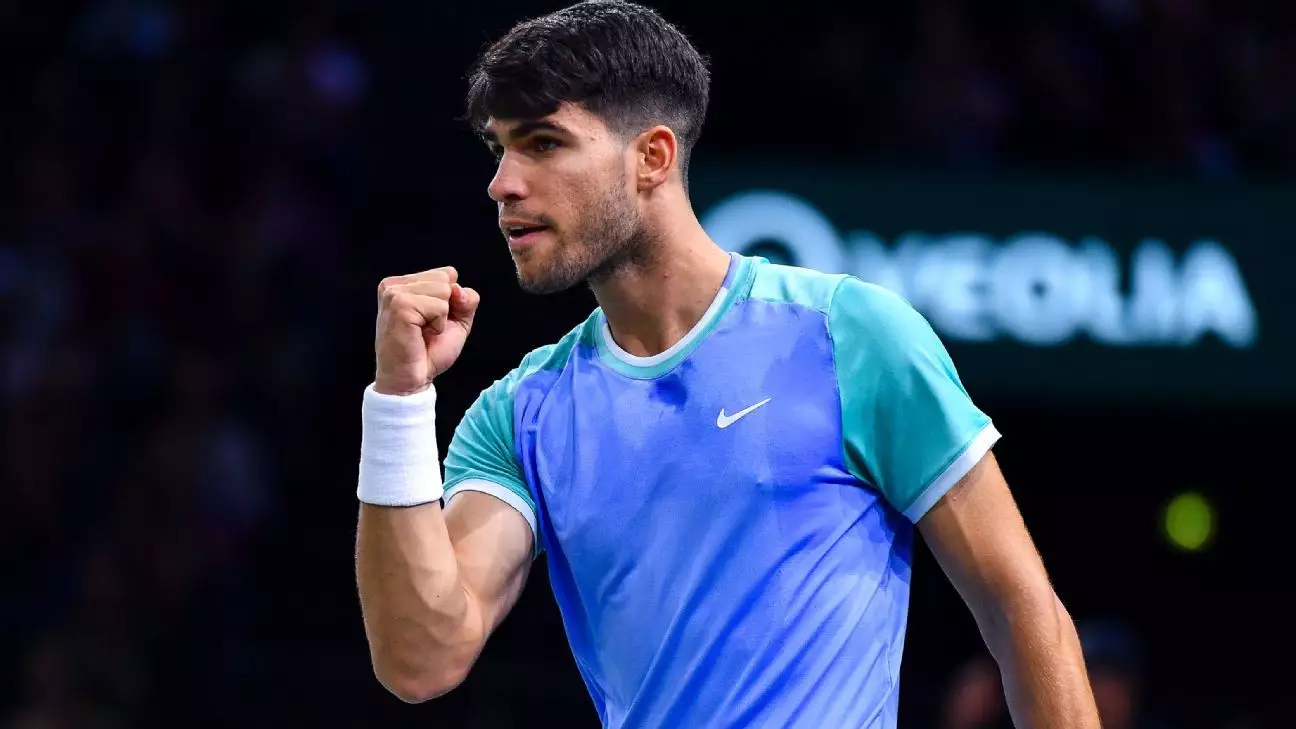Carlos Alcaraz’s recent performance at the ATP Finals in Turin serves as a testament to his resilience and tactical astuteness. Despite facing physical discomfort and a lackluster start to the tournament, where he suffered a straight-set loss to Casper Ruud, Alcaraz managed to turn the tables against Andrey Rublev, securing a hard-fought 6-3, 7-6(8) victory. This win not only revitalizes his chances of making it to the semifinals, but it also exemplifies the tenacity required at the highest levels of professional tennis.
Alcaraz’s victory was not merely a display of skill; it showcased his ability to focus amid adversity. After expressing discomfort during his previous match, where he mentioned feeling “uncomfortable in the stomach,” the young Spaniard braved through his physical issues. He noted, “I just tried to be focused on my game, on what I have to do,” a mindset that reveals much about the mental fortitude required at elite levels of competition. Alcaraz prioritized his strategies over personal discomfort, a decision that proved crucial in maintaining his competitive edge throughout the match.
One of the standout aspects of Alcaraz’s game against Rublev was his remarkable use of drop shots, a tactic that has become a hallmark of his playing style. He executed numerous drop-shot winners, keeping Rublev guessing and constantly on the move. As he articulated post-match, “I was thinking, ‘What’s going on?’ when my drops weren’t working before,” indicating an awareness and adaptability within his gameplay. The responsiveness to change turned the tide in his favor, allowing him to finish the match with a staggering 31 winners—over double Rublev’s 14.
The effectiveness of his drop shots not only created direct points but also forced Rublev into challenging positions, leading to more exploitative shots into open areas of the court. Such strategic play underlines the intricate balance between physical agility and strategic foresight that Alcaraz possesses.
As the ATP Finals progress, Alcaraz is well-positioned with a 1-1 record. The tournament format necessitates that his upcoming match against Alexander Zverev will be crucial. The results of this match could determine whether Alcaraz advances to the semifinals, making it a pivotal encounter for the young athlete. With Rublev now at 0-2 and struggling for survival, the stakes are high on all fronts, highlighting the competitive dynamics of the ATP Finals.
In a sporting arena where every point counts and mental strength often outweighs physical prowess, Alcaraz’s journey demonstrates that champions aren’t made only on the scoreboard but in their ability to rise above challenges with ingenuity and resilience. This ATP Finals experience will undoubtedly contribute not only to his career progression but also to his development as a formidable competitor in the world of tennis.

